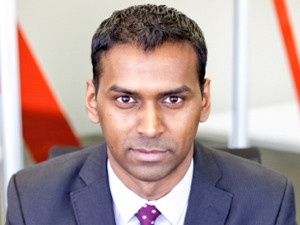
Digital technology is redefining the way the world works, says Lee Naik, MD of digital and technology strategy at Accenture.
Naik is on the bill of speakers at ITWeb Digital Economy Summit 2015, taking place in Johannesburg on 21 April.
During his presentation: "Succeeding in the 'we' economy", Naik will provide insight into how pioneering businesses see potential to make a difference and profit by operating as ecosystems and not just as individual corporate entities.
"What this means is digital technology is making it easier to understand what customers truly want, especially as hardware on the edge - also known as the Internet of things - becomes increasingly intelligent.
"In addition, the proliferation of alternatives, pressure from business, due to the consumerism of IT, and the rise of digital have started impacting on the ability of IT infrastructure owners to prioritise to keep the pace. There is a sense that organisations are in a constant state of change, and this places pressure on already stretched organisations."
Naik continues: "We are now beginning to see a dramatic shift from the Internet of 'me' to 'we'. As everyday objects are going online, so too are experiences, thus creating an abundance of digital channels that reach deep into every aspect of individuals' lives. Forward-thinking businesses are changing the way they build new applications, products and services, and reaping benefits as a result.
"To gain control over these access points to individuals' experiences, businesses are creating highly personalised experiences to both engage and exhilarate customers. The majority of these companies are seeing a positive return on their investment in personalisation technologies."
Joining Naik at the event is Gary Swale, director of business development at Knowledge Dimension. Swale will explore the topic: "Engaging the digital natives".
Swale says digital natives think differently to previous generations, as they use the social technologies and tools in their personal lives and expect to use a similar environment at work.
"Social means thinking and acting in a more inclusive manner, connecting and engaging with people in both formal and informal networks to make more informed decisions quicker. And if businesses don't give them a secure, scalable, easy-to-use enterprise social network, they'll find a way around it and use inappropriate public social networks to do the same thing."
Share